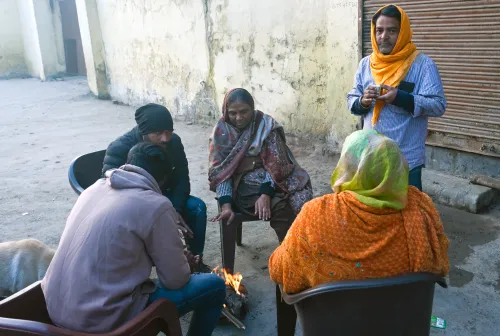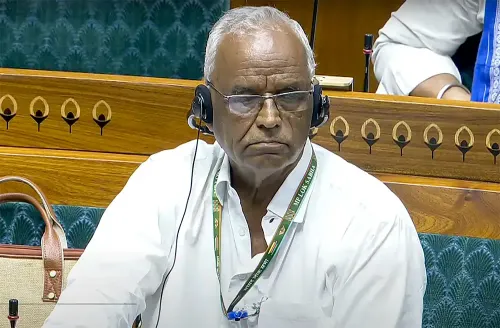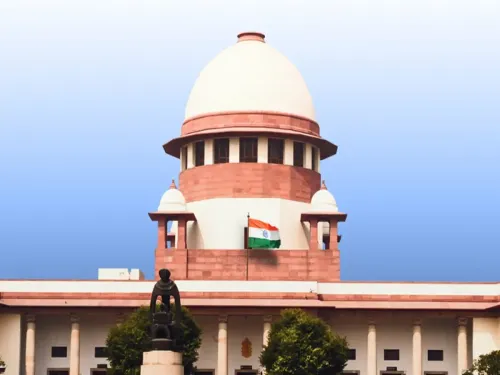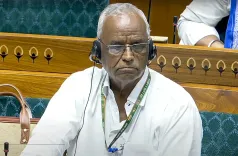Could Pakistan Face Fragmentation If War Escalates?
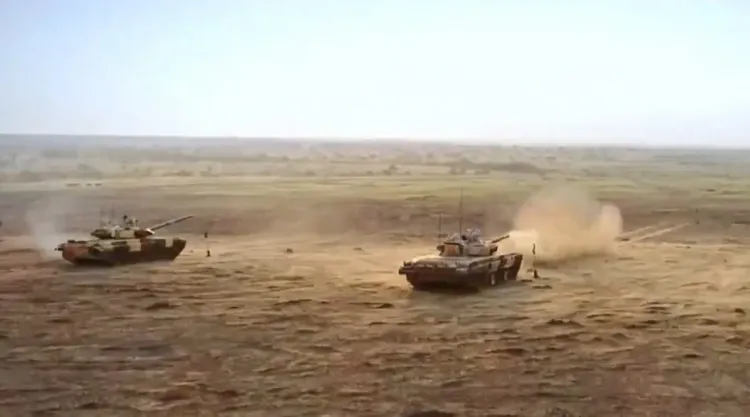
Synopsis
Key Takeaways
- Escalation of tensions between India and Pakistan could have severe repercussions.
- Military experts emphasize the internal instability within Pakistan.
- India's responses have been measured and focused on countering provocations.
- Key areas of conflict include Balochistan, Khyber Pakhtunkhwa, and Gilgit-Baltistan.
- Global terrorism remains a significant concern linked to Pakistan's military actions.
New Delhi, May 9 (NationPress) As tensions between India and Pakistan escalate, esteemed defense analysts and military veterans have cautioned that any further provocations from Islamabad could result in catastrophic outcomes, potentially leading to the disintegration of Pakistan.
Defense analyst Sanjeev Srivastava remarked, “Should a formal war commence, it may trigger the fragmentation of Pakistan. The internal situation in Pakistan is already precarious, with rising demands for autonomy in Balochistan, Khyber Pakhtunkhwa, and Gilgit-Baltistan. Pakistan is politically unstable and facing economic collapse. In such a scenario, an escalation to war could cause its absolute obliteration and the cessation of its existence.”
Srivastava emphasized that India’s current military actions have been measured and primarily focused on addressing Pakistan's provocations.
“India has issued a strong response to Pakistan’s provocations, which include drone strikes, missile assaults, and aerial operations. These reactions have been proportionate. However, the situation is teetering on the edge of a comprehensive war. If Pakistan persists in its malicious activities, India may be forced to declare war,” he cautioned.
He also pointed out India's adept utilization of advanced air defense systems like the S-400, asserting that Pakistan's air raids were “completely thwarted”. He noted that Indian counterattacks even incapacitated Chinese-made defense facilities within Pakistan.
Retired Brigadier Vijay Sagar Dheman shared a similar view, stating, “Given that Pakistan has launched attacks for two successive nights, with the most recent assault comprising a three-pronged drone offensive targeting Jammu, Punjab, and even Rajasthan -- India must now engage in kinetic response. I personally witnessed the attack attempt on Jammu Airport. A robust military, economic, and diplomatic reaction is imperative, including a thorough review of the Indus Waters Treaty and a naval blockade.”
He added, “Over 50 drones were intercepted in the latest offensive. This underscores India’s readiness but also emphasizes Pakistan’s relentless aggression. The moment has arrived for a unified response across all fronts.”
Maj Gen K.K. Sinha (Retd) disclosed that India’s deep strike targeted “nine pivotal locations spanning from Muzaffarabad to Bahawalpur, over 1,000 km.” He characterized the assault as a reaction to a “strike on our very essence,” asserting, “Pakistan is the nucleus of global terrorism, with the ISI and the Pakistani Army directly accountable. Our operations were precise, retaliatory, and de-escalatory, yet Pakistan opted to escalate by attacking 15 Indian military sites.”


